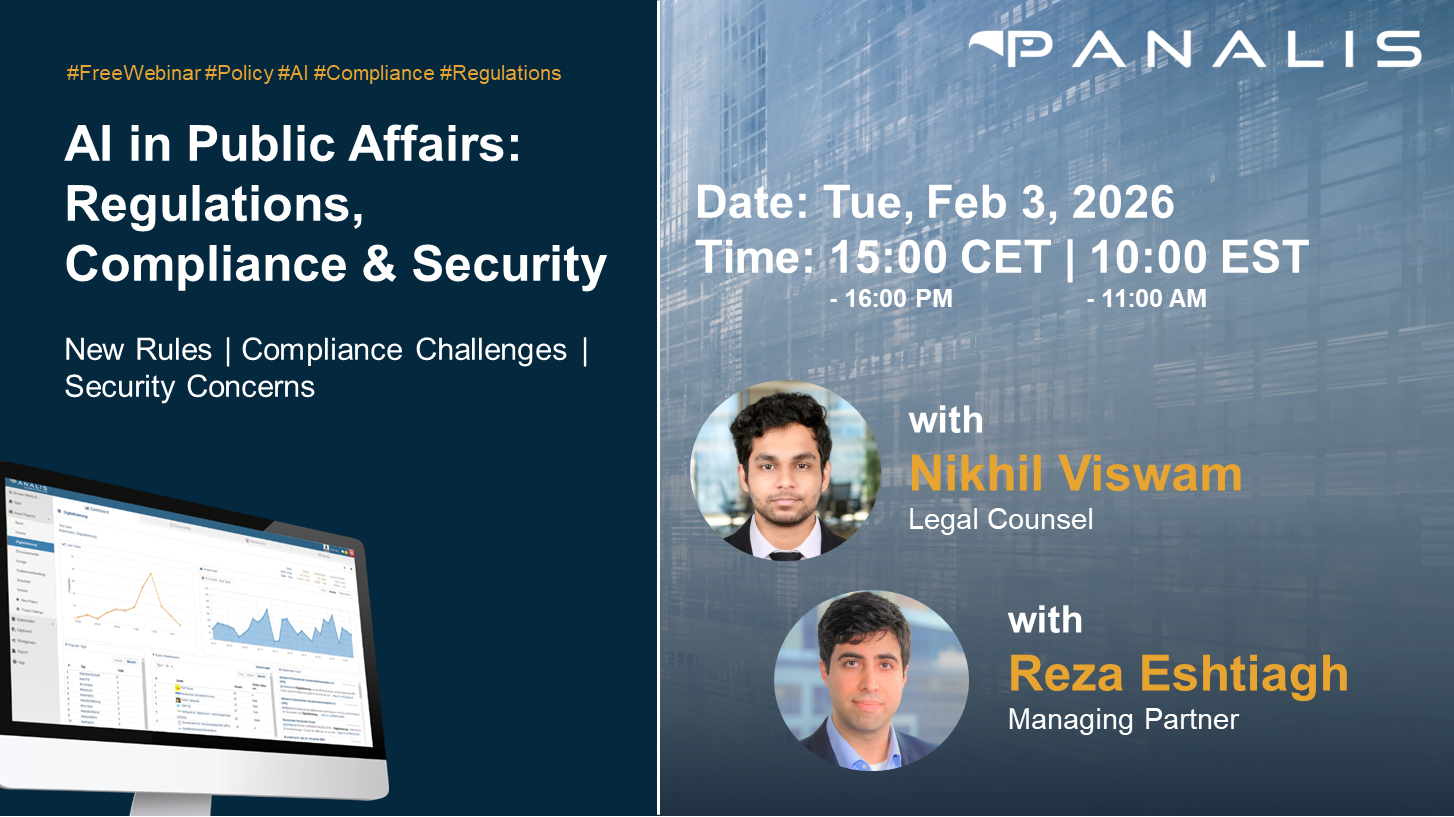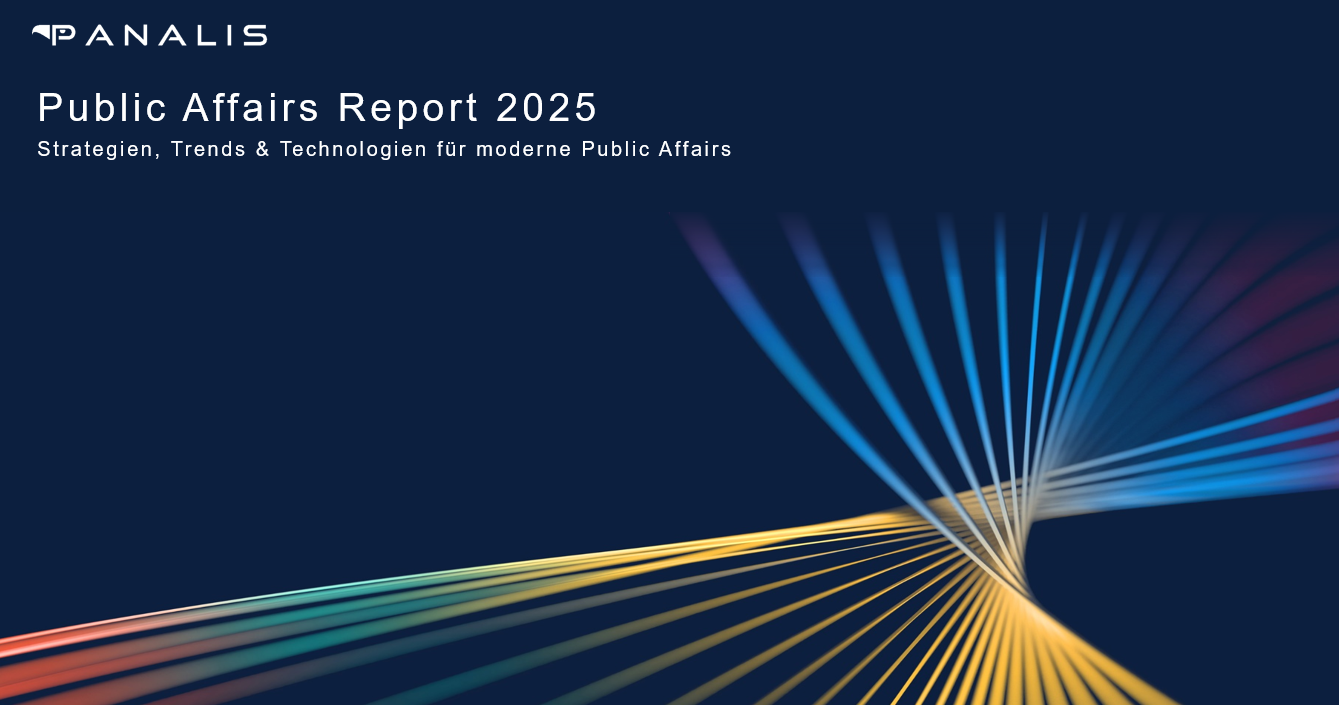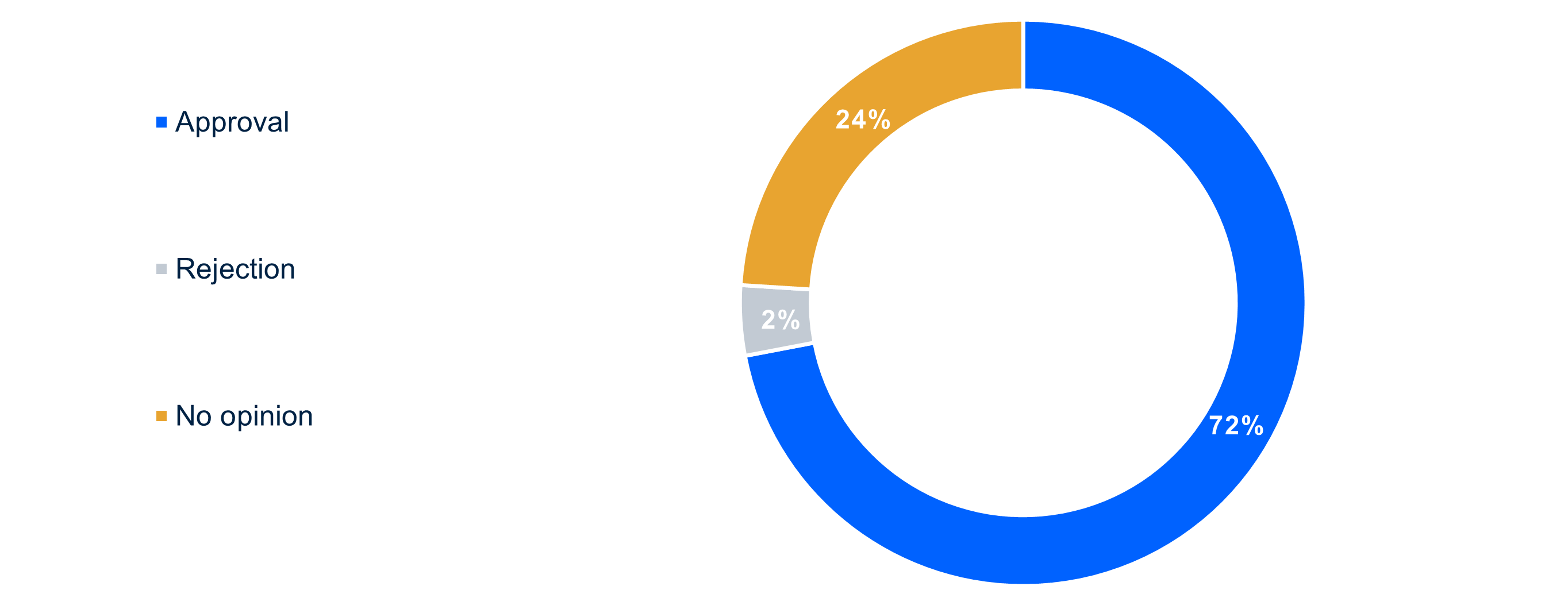Event: PANALIS Monitoring para España – Inteligencia artificial para el monitoreo político

01:00 PM – 01:45 PM (CET)
Webinar
PANALIS Monitoring para España – Inteligencia artificial para el monitoreo político
Info
Únase a nuestro seminario web sobre PANALIS Monitoring para España – Inteligencia artificial para el monitoreo político
¡Nos complace anunciar nuestro nuevo seminario web de PANALIS Solutions para España! En esta sesión presentaremos nuestra plataforma de monitoreo político, que permite seguir de cerca los procesos legislativos y la evolución de la opinión pública. Además, os mostraremos PANALIS Copilot, una innovadora herramienta de inteligencia artificial que resume contenidos, elabora análisis de impacto, identifica las posiciones de los actores a partir de sus publicaciones y te ayuda a redactar respuestas o documentos de posición.
Moderador: Peter-Alberto Behrens
Consultor político de origen latino-alemán, especializado en apoyar a empresas e instituciones en la representación de sus intereses dentro del ámbito político germano e hispanoamericano. Gracias a su perspectiva multicultural, ayuda a sus clientes a posicionarse estratégicamente y con éxito en contextos políticos y culturales diversos.
Ponente: Giacomo Falcon
Profesional con gran experiencia en asuntos públicos digitales y desarrollo empresarial especializado en la región Europa, Oriente Medio y África. Combina su experiencia en tecnologías digitales con un profundo conocimiento del panorama político.
Agenda:
– Bienvenida e Introducción (5 min)
– Descripción general de PANALIS Solutions (5 min)
– Demostración en vivo de la plataforma PANALIS Monitoring (15 min)
– Análisis de casos de uso con Peter-Alberto Behrens (10 min)
– Ronda de preguntas y respuestas (10 min)
Audiencia meta:
– Departamentos de asuntos públicos, asuntos corporativos y relaciones institucionales
– Entidades de lobby y de cabildeo
– Asociaciones & ONGs
– Agencias gubernamentales
Registro: Por favor, regístrese de forma gratuita a través del enlace de participación mencionado anteriormente – ¡Sin fecha límite para el registro!
No deje pasar esta oportunidad de descubrir cómo PANALIS puede ayudarle a estar a la vanguardia en el monitoreo de los procesos legislativos y de la opinión pública.





